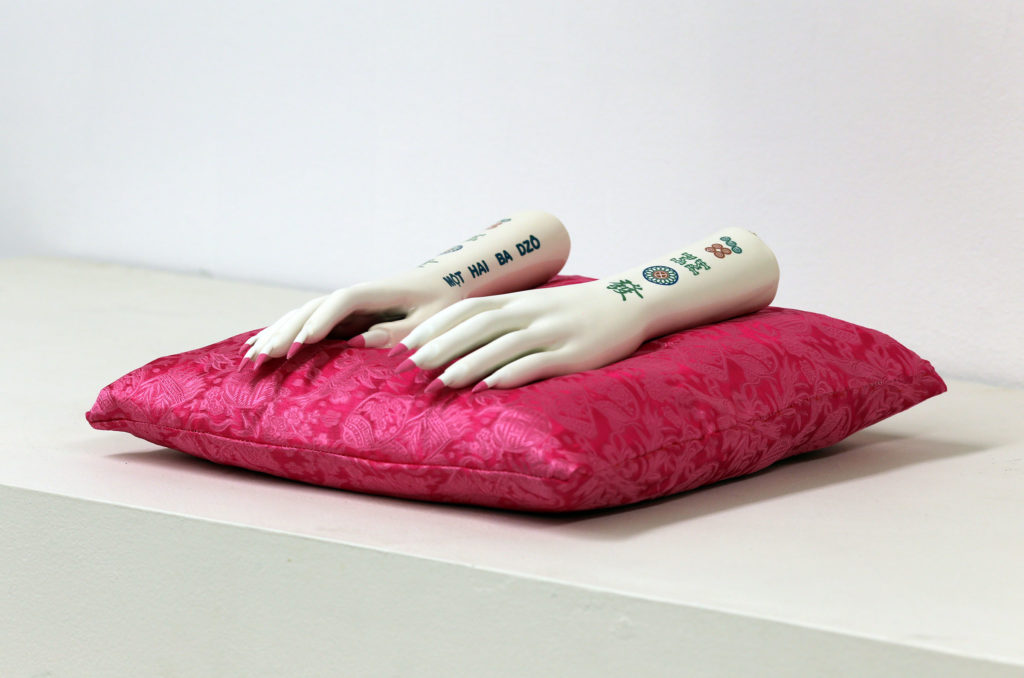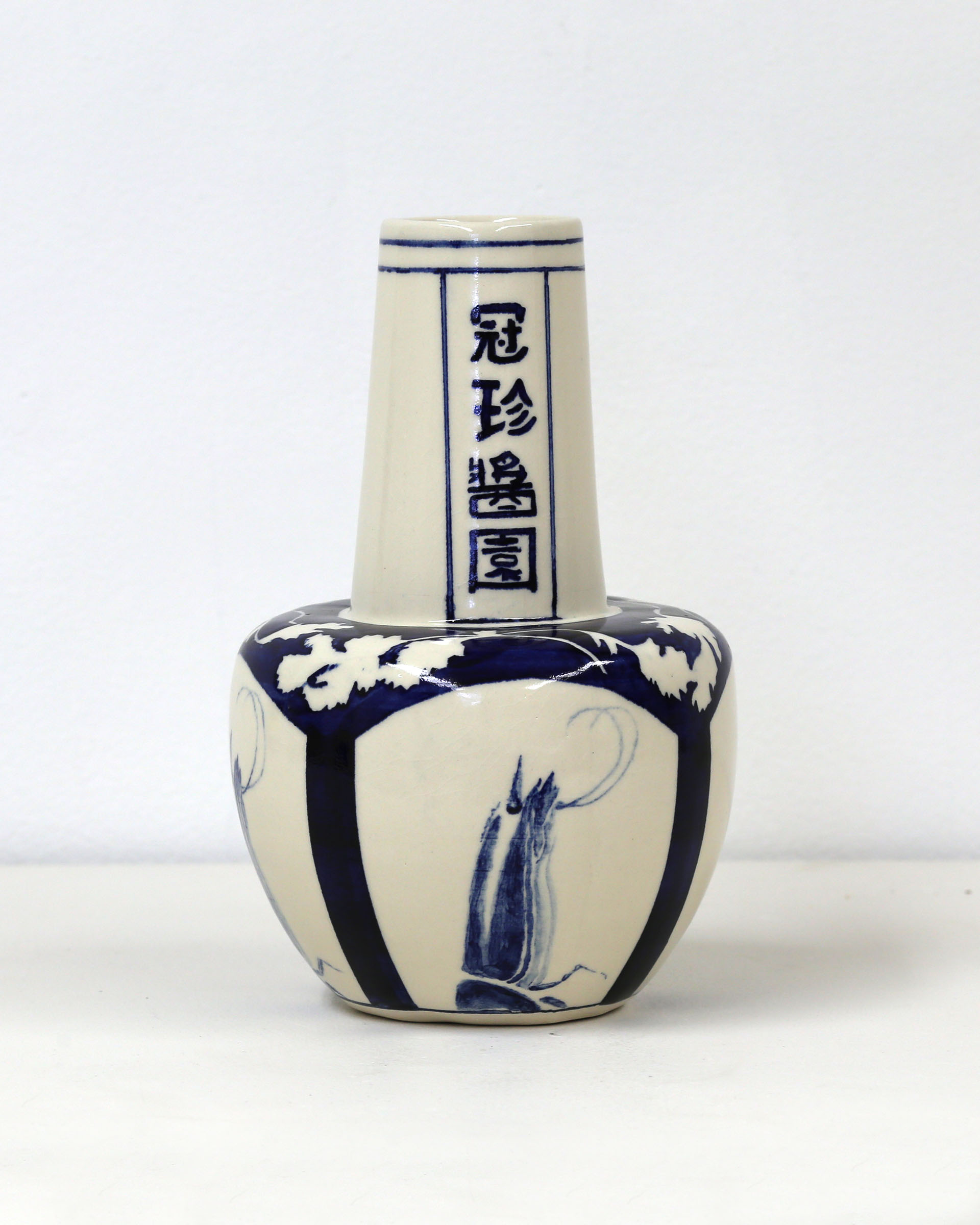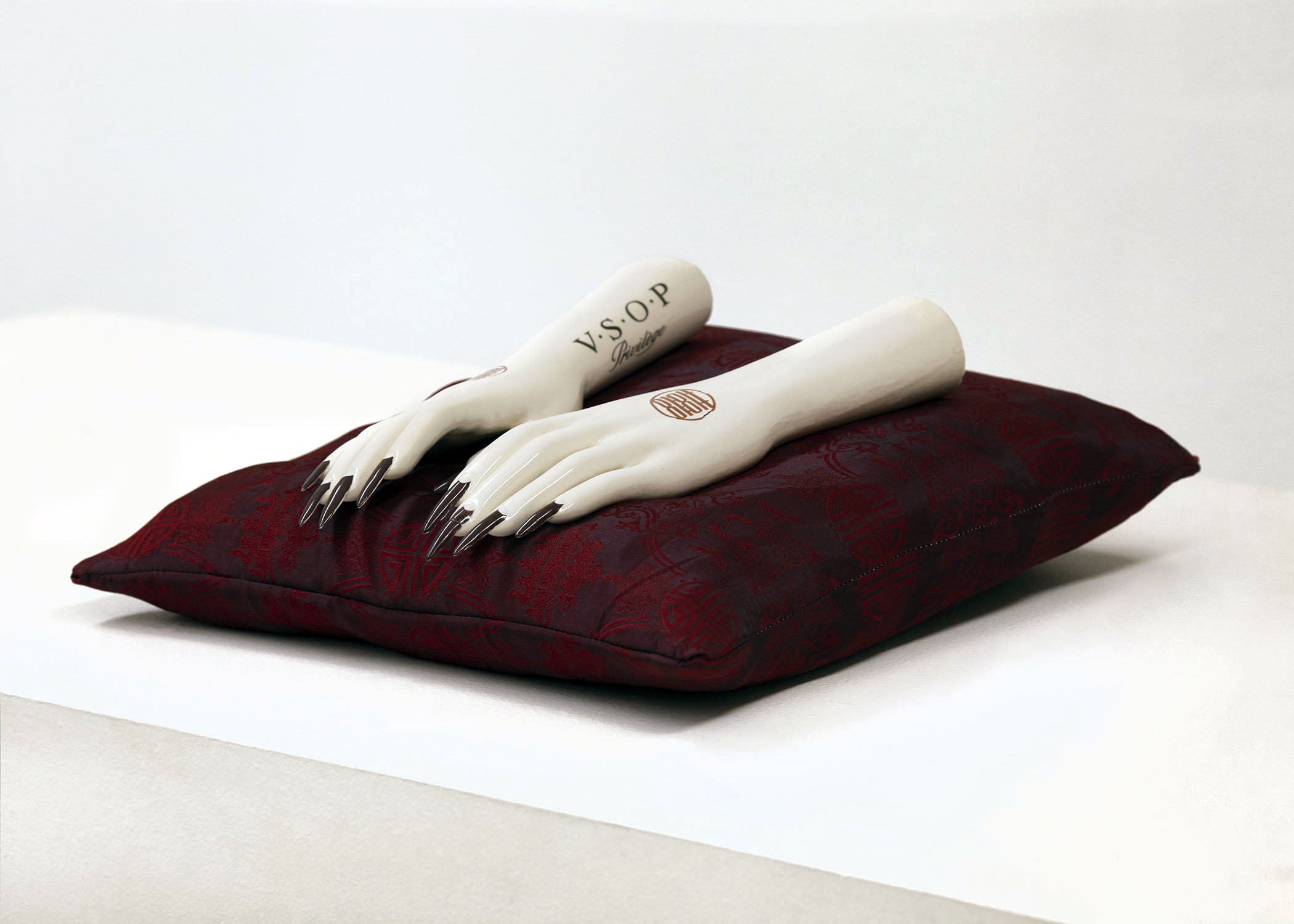
Christian Dinh remembers the smells and bustle of the nail salons owned by Vietnamese-American immigrants in his hometown of St. Petersburg, Florida. At the time in the 1990s, he tried to distance himself from such places, feeling that there was a racial stigma associated with them. Later, however, at Tulane University, while pursuing his masters of fine arts in studio art, Dinh wanted to pay homage to the generations of women who have started, owned, run, and worked at such salons for more than half a century. Now, two years later, his Nail Salon series contains a dozen pieces that honor the labor of those immigrants.
Under the guidance of a professor trained in ancient Chinese porcelain sculpting, Dinh began to create porcelain versions of the display hands typically seen at the front desk of a salon. (Because workers may not be proficient in English, customers can point to one of these designs to indicate the kind of manicure they want.). “Porcelain is a difficult material to use,” he says. “It has less structural integrity than other earthen clays in the United States. The key is time—giving the material enough time to work with.” He begins by preparing a cast of the demonstration hands, then fills the cast with the thin porcelain slip. Once fired, cooled, and painted, Dinh places the porcelain hands on cushions made from traditional Vietnamese fabrics, áo dài, which are worn during celebrations. Dinh’s aim is to “elevate the meaning of the workers in the nail salon,” and he hopes that viewers are left with a sense of awe and respect for the lives of industrious Vietnamese immigrants. “The nail salon represents a beacon for the Vietnamese-American communities to know they have a place of work here in the United State,” he says. “And for incoming immigrants from all different nationalities to find work in the U.S. who are coming here for the first time.”



